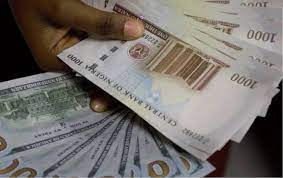Nigeria, Malaysia, Indonesia and other emerging markets will likely hold benchmark rate this week to preserve inflation and yield rates.
In Nigeria, inflation climbed for the fourth consecutive time, well above target levels. Based on this, analysts, both local and foreign see the Central Bank of Nigeria (CBN) maintaining status quo.
Investors are turning their focus to the growth story now the phase-one trade deal has been signed and policy makers become increasingly wary of extending interest-rate cuts as inflation starts to pick up.
“Central banks in Malaysia, Indonesia and Nigeria are set to keep their benchmark rates unchanged this week, preserving the positive real yields at least in those three countries”, said Bloomberg.
“Emerging markets, in particular currencies and equities, are in a sweet spot,” said Jim McCormick, the London-based global head of desk strategy at NatWest Markets. “The macro narrative heading into 2020 has shifted. We’ve got stabilization in manufacturing, stabilization in China and global central banks pre-committing to never raising rates again.”
Indexes of stocks and currencies in the developing economies advanced for a seventh week through Friday, the longest winning streak in two years, in the wake of the U.S.-China trade agreement. The gauges were steady on Monday. Meantime, local-currency bonds have had their best run since July.
Bank Negara Malaysia and Bank Indonesia are set to meet on Wednesday and Thursday, with both central banks forecast to keep their benchmark rates unchanged at three per cent and five per cent, respectively“It makes sense for central banks to tactically wait and see where the economic data is headed,” said Frederic Neumann, Hong Kong-based co-head of Asian economics research at HSBC Holdings Plc. “Maybe there’s an argument for tactical pause, but that wouldn’t preempt them from cutting at the subsequent meetings. Those are the two central banks we expect to cut this year”Indonesia’s rupiah is the best performer this month among Asian currenciesRead: Asia’s Best Currency for 2020? It’s Hard to Look Past the RupiahThe Bank of Korea left its seven-day repurchase rate unchanged at 1.25 per cent on Friday, as the governor took a more upbeat view on the economy.
China kept at 4.15 per cent its one-year loan prime rate, which serves as a benchmark for banks’ corporate lending under a new interest-rate framework that was unveiled in August.



